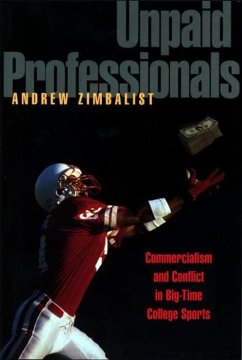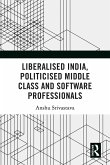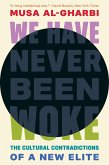Big-time college sports embodies the ideals of amateurism and provides an important complement to university education. Or so its apologists would have us believe. As Andrew Zimbalist shows in this unprecedented analysis, college sports is really a massively commercialized industry based on activities that are often irrelevant and even harmful to education. Zimbalist combines groundbreaking empirical research and a talent for storytelling to provide a firm, factual basis for the many arguments that currently rage about the goals, history, structure, incentive system, and legal architecture of college sports. He paints a picture of a system in desperate need of reform and presents bold recommendations to chart a more sensible future.
Zimbalist begins by showing that today's problems are nothing new--that schools have been consumed for more than a century by debates about cheating, commercialism, and the erosion of academic standards. He then takes us into the world of the modern student athlete, explaining the incentives that, for example, encourage star athletes to abandon college for the pros, that create such useless courses as "The Theory of Basketball," and that lead students to ignore classes despite the astronomical odds against becoming a professional athlete. Zimbalist discusses the economic and legal aspects of gender equity in college sports. He assesses the economic impact of television and radio contracts and the financial rewards that come from winning major championships. He examines the often harmful effects of corporate sponsorship and shows that, despite such sponsorship, most schools run their athletic programs at a loss. Zimbalist also considers the relevance of antitrust laws to college sports and asks whether student athletes are ultimately exploited by the system.
Zimbalist's provocative recommendations include eliminating freshman eligibility for sports, restricting coaches' access to "sneaker money" from corporations, and ending the hypocrisy about professionalism by allowing teams to employ a quota of non-students as well as to receive funding from the pro leagues. A mixture of lively anecdotes, hard economic data, cogent arguments, and clear analysis, Unpaid Professionals will revitalize debate about a subject close to the hearts and minds of millions of Americans.
Zimbalist begins by showing that today's problems are nothing new--that schools have been consumed for more than a century by debates about cheating, commercialism, and the erosion of academic standards. He then takes us into the world of the modern student athlete, explaining the incentives that, for example, encourage star athletes to abandon college for the pros, that create such useless courses as "The Theory of Basketball," and that lead students to ignore classes despite the astronomical odds against becoming a professional athlete. Zimbalist discusses the economic and legal aspects of gender equity in college sports. He assesses the economic impact of television and radio contracts and the financial rewards that come from winning major championships. He examines the often harmful effects of corporate sponsorship and shows that, despite such sponsorship, most schools run their athletic programs at a loss. Zimbalist also considers the relevance of antitrust laws to college sports and asks whether student athletes are ultimately exploited by the system.
Zimbalist's provocative recommendations include eliminating freshman eligibility for sports, restricting coaches' access to "sneaker money" from corporations, and ending the hypocrisy about professionalism by allowing teams to employ a quota of non-students as well as to receive funding from the pro leagues. A mixture of lively anecdotes, hard economic data, cogent arguments, and clear analysis, Unpaid Professionals will revitalize debate about a subject close to the hearts and minds of millions of Americans.









